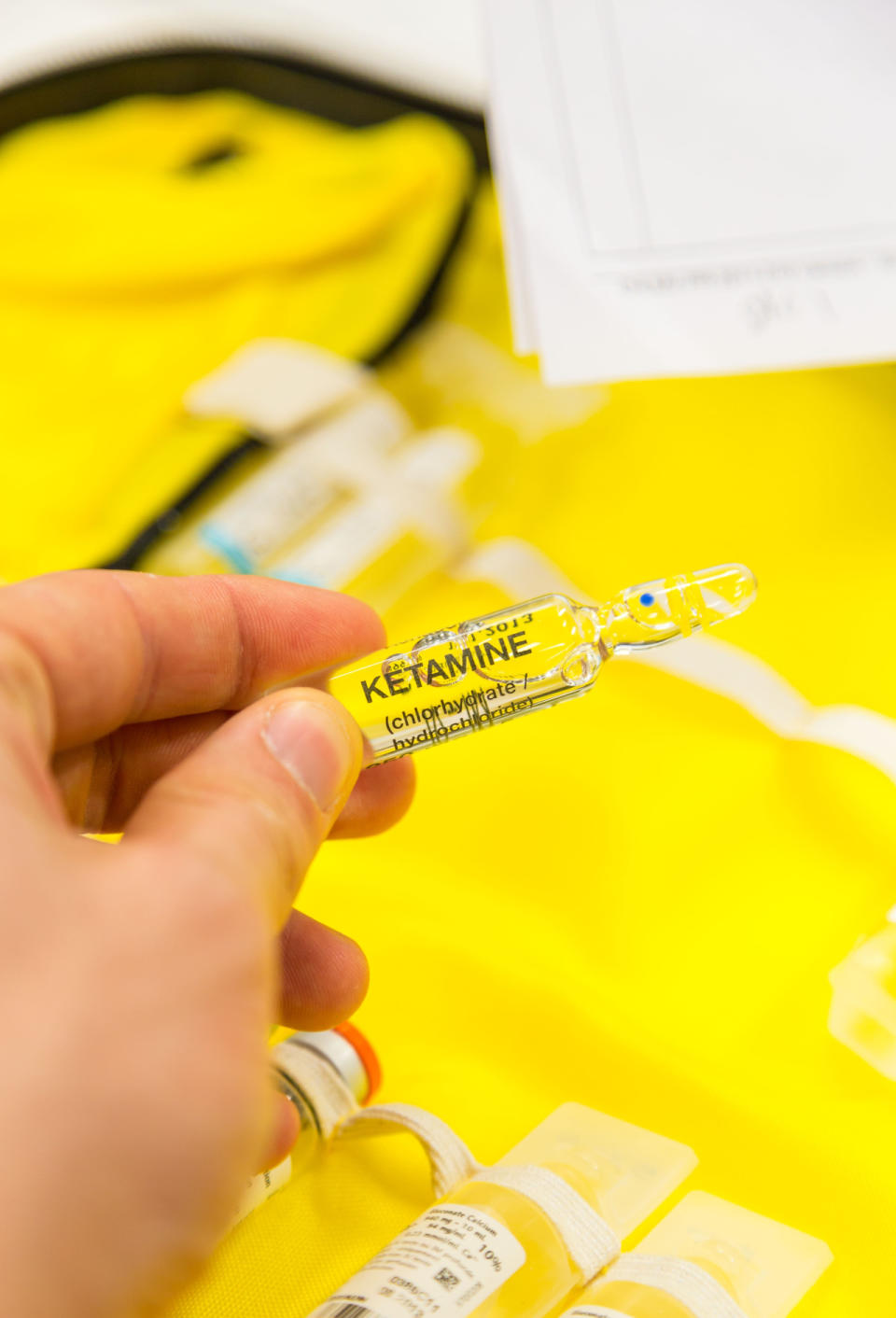Ketamine Could Be Used To Treat Alcoholics And Alcoholism

Brain changes - ketamine can cause changes that help us to learn new things
Researchers are launching a new trial to look into whether low doses of party drug ketamine can be used to treat alcoholics.
The new study is recruiting volunteers to test whether low doses of ketamine help make psychological therapy more effective and prevent alcoholics from relapsing.
A pilot study previously found that giving people doses of the drug as well as psychological therapy saw average 12-month relapse rates drop from 76% to 34%.
Severe alcohol use affects nearly four million people in the UK.

Safe - ketamine can be used safely in a controlled environment
The new study KARE (Ketamine for reduction of Alcoholic Relapse), by researchers from the University of Exeter, University College London and Imperial College London, is recruiting 96 volunteers who have recently stopped drinking.
They will be given a low dose of ketamine once a week for three weeks, as well as sessions of psychological therapy.
It is hoped the use of ketamine will make the psychological therapy more effective, as previous studies in mice suggest the drug can produce brain changes that make it easier to learn new things.
A control group will get the same therapy but be injected with saline instead of ketamine so researchers can compare results. Everyone involved in the study will wear an ankle device to monitor alcohol intake by measuring their sweat levels.
Though a popular party drug, ketamine can be used safely in a controlled environment and is commonly used as an anaesthetic in medicine.
Professor Celia Morgan, professor of Psychopharmacology at the University of Exeter, who is leading the study, said: “Previous research has told us that ketamine is a well-tolerated drug and can help alleviate the symptoms of depression, with a pilot study suggesting that it could cut alcohol relapse rates by more than half.
“This trial will allow us to examine whether ketamine, combined with therapy, can indeed help people stay abstinent from alcohol”.
Dr Kathryn Adcock, head of neurosciences and mental health at the Medical Research Council (MRC), added: “Alcoholism can have a terrible impact on both the individual and those around them, but current treatments for alcohol dependence are associated with high relapse rates – with people often returning to drinking after only a short time of abstinence.
“We are constantly looking for new ways to help change this pattern and we look forward to the results of this innovative trial.”
(Pictures: Rex)

